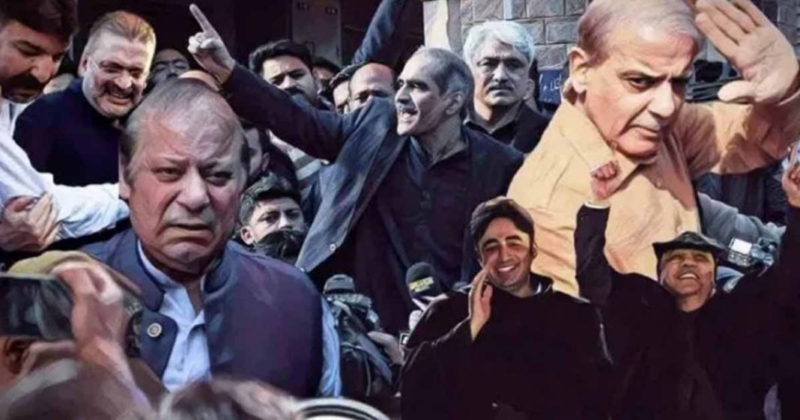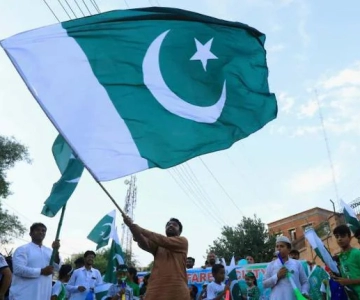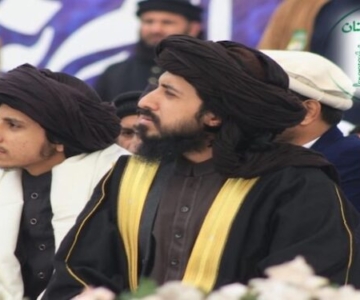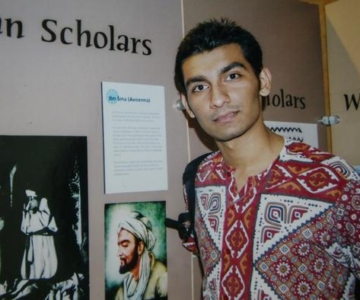The foregoing year was tumultuous to say the least. Pakistan’s ruling elites – elected and unelected – reinforced old patterns of governance. After ten years of democratic transition, it seems that the gains made by the parliament have been partially reversed. At the end of 2017, we witness a resurgence of the judiciary-military combine as they continue to ‘fix’ the ‘political’ arena.
The first half of the year was consumed by the Panama case and two verdicts of the Supreme Court resulted in the ouster of (former) Prime Minister Nawaz Sharif. The latter was disqualified on a mere technicality and the corruption cases were referred to accountability courts. The apex court by setting questionable precedents only repeated its past behaviour. In short, the law of necessity invoked since the 1950s, rhetorically shunned time and again, continues to be used by other names.
The decision to disqualify a sitting prime minister exposed the inherent weaknesses of Pakistan’s democratic project. That Nawaz Sharif had fallen out with the establishment was an open secret, but the manner in which his third dismissal occurred was alarming for it opens the doors for judicial coups in the future. It was hoped that after Musharraf’s exit, the military had decided to take a backseat. Events of 2017 belie this theory; and it is clear that the military remains in charge not just of the security and foreign policies but also of the overall political direction of the country.
Sharif’s ouster makes the future of his party and dynasty uncertain. Even though there are indications that the establishment prefers his younger brother, it is unclear how would Nawaz factor disappear from the political field? Unless of course there is another exile planned for the former PM.
On the positive side, the national census was completed after two decades. Similarly, the health authorities successfully fought the poliovirus and marginal improvements in education enrolment were recorded
The year was not good for Pakistan’s beleaguered civil society especially for digital freedoms. The year started with the mysterious abduction of social media activists who were released after weeks of detention and had chilling tales to narrate. Their main fault was the criticism of the military but they were painted as blasphemers in the mainstream media so as to justify the entire sordid episode. The year closes with another missing activist from Lahore whose main crime has been to advocate Pakistan-India peace. The shutdown of dozens of international nongovernmental organisations in 2017 is a gloomy sign. Some of the aid groups have not been clean in the past but how can the third sector be collectively punished?
While the judiciary and the military did what they have been doing, the worst perhaps was the conduct of political elites themselves. Nawaz Sharif suddenly remembered the supremacy of the parliament after his judicial ouster. During his third tenure, Sharif rarely attended the parliamentary sessions and his indifference to the imperative of building larger political coalitions resulted in political polarisation. At the end of 2017, he has a few allies, as Imran Khan and Zardari are willing to participate in the new engineering project that will open up spaces especially in the Punjab for them in the next election.
On the external front, 2017 was more of the same with regular shouting matches with Afghanistan, India and the United States. These crucial relationships remain strained largely due to lack of political and diplomatic input in the conduct of foreign policy. The silver lining is growing economic cooperation with China, which will help Pakistan in the long run. However, there were many voices of dissent about the terms and details of China-Pakistan Economic Corridor (CPEC). National debate on CPEC remains one-sided and largely ill-informed with little or no input from the Parliament.
On the positive side, the national census was completed after two decades. Similarly, the health authorities successfully fought the poliovirus and marginal improvements in education enrolment were recorded. The best news from the year was that other than the stock markets fluctuating downwards, Nawaz Sharif’s succession by his loyal associate ensured policy continuity. But the political instability of 2017 and beyond would cast its shadow over the economy. This is one lesson that the permanent establishment of the country is yet to learn.
The most worrying developments of 2017 were related to a reversal on the state’s commitment to fight extremism. Throughout the year, blasphemy was used as a brazen instrument to crush dissenters. The brutal lynching of Mashal Khan happened amid this charged environment and the state cannot absolve its responsibility in aiding and abetting violent religious sentiments. Later in the year, blasphemy was used as a tool to pressurise the government. An ugly display of extremism on the streets of Islamabad for three weeks made a mockery of the so-called National Action Plan (NAP) against terrorism. The year 2017 will be remembered for the de facto burial of NAP. As if establishment’s patronage to Barelvi groups was not enough, the ‘good’ jihadists were successfully inducted into electoral politics. Without disarming violent groups, their mainstreaming is suicidal; and yet this seems to be the future course.
Notwithstanding the brave individual journalists and their contributions in Pakistan, the overall conduct of media industry remained questionable. Many television anchors aided the manufacturing of multiple crises, promoted one-sided narratives, and their abandonment of ethics was disturbing to say the least. The removal of PEMRA chairman by a court order in December was another ominous sign for the former was trying to regulate some of the errant TV channels. At the end of the day, the corporate media backed by powers-that-be, won.
The year ahead presents a variety of challenges. Foremost among these is securing a peaceful transition of power from one elected government to another after 2018 election. Transparent and fair electoral process is a key requirement to facilitate the third, rule-based transfer of power in a decade. To achieve that, the political elites will have to reconsider their tunnel-vision politics, shun the establishment-led engineering, and unite against extra-constitutional steps such as a government of technocrats.
Published in Daily Times, December 31, 2017: Instability, manufactured crises and surrender



